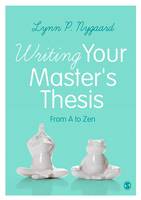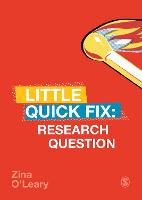How to survive your dissertation
Doing a dissertation is a whole new world for me.
In my undergrad back in Peru, I graduated in 2013 with a practical entrepreneurship project, so this is my first time doing a dissertation and doing it in English. But I accepted the challenge, and here I am, spending all my summer writing a 13,000 words dissertation.
I wanted to share some pieces of advice for anyone that is facing a dissertation:
1. It is never too early to start thinking about your dissertation: I am doing my master's in Marketing, and before coming to Glasgow, I did not have the topic, but I knew I wanted to research something related to consumer behaviour, a discipline that I love. I spent several months thinking about my research question, which is the trigger for the whole process, but I did not know how to make it until I researched how a good research question needs to be structured.
Research Question
I found helpful information at the University and in the book "Research question" by Zina O'Leary.

2. Everything starts with the research proposal: Before you are allocated with a supervisor, your programme will ask you to submit a research proposal, which is the plan of your research. This research proposal will help your course convenor allocate you with a supervisor with experience in the field you want to do research, so take the research proposal as a serious first step in the dissertation process.
Useful books...
I found helpful the books "Research Proposals, a practical guide" by Martyn Denscombe and "Research proposal" by Zina O'Leary.

3. The research methods will become your best friend: During my master's, I had a Marketing Research course that helped me to understand the broad picture of academic research. Then I had to understand the most specific details of my methodological choice (my research question informed that). I found valuable information on methodology in the Project Planner by SAGE Research Methods and in the Grad Coach blog.
4. Planning is the key: Before you start writing the first page of your first draft of your dissertation is good to have a plan. You will have to schedule meetings with your supervisor, have deadlines for your chapters, etc. So, please plan. Three months could sound like a lot of time, but time flies. An excellent practice to have all your tasks defined weekly.
A book that helped me organise my dissertation process is
"Planning your dissertation" by Kate Williams.

5. Enjoy the process: You will spend a lot of time working on your dissertation, so make sure you choose a topic that you find fascinating, and you will feel like you are doing something like a "hobby" instead of an academic obligation.
A book that is my best companion in this process is
"Writing your master's thesis from A to Zen" by Lynn P. Nygaard.


More articles in this category:
- Your guide to online etiquette
- Why Should Critical Thinking be on your Radar?
- What skills will I develop from undertaking a social science research project?
Aston University, Student Support
For more information and support on this topic from Aston University - please click here


